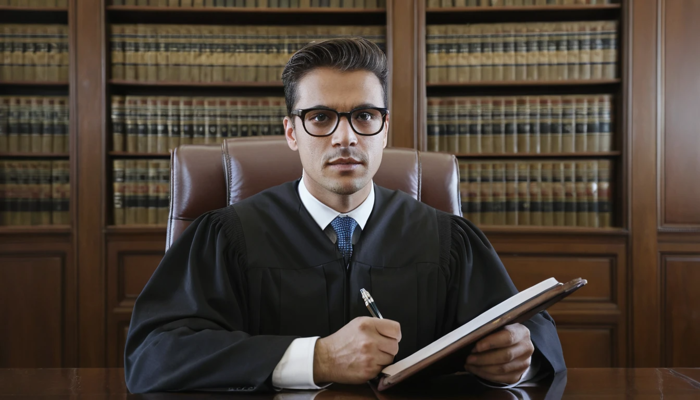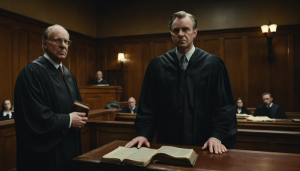
DWI with a passenger under 15 is a serious felony in many states — learn what it means, the consequences, and how you can protect your rights.
If you drive while intoxicated and have a passenger under 15 years old in the car, many states (like Texas) treat that as a felony rather than a misdemeanor, meaning harsher penalties, longer jail time, steeper fines, and serious long-term consequences.
Have you ever stopped to think about what happens if someone gets a DWI while a child is in the car?
It’s a lot more serious than most people realize. When you’re caught driving while intoxicated and there’s a passenger under 15 in your vehicle, the law doesn’t see it as a “normal” DWI — it becomes a felony. In many states, including Texas, this charge is defined as Driving While Intoxicated with a Child Passenger.
Let’s break down what that really means, why it’s treated so seriously, and what to do if you or someone you know faces this charge.
What Exactly Is “DWI With A Passenger Under 15” 🚗
When someone is charged with DWI with a passenger under 15, it means:
- They operated a vehicle in a public place while intoxicated by alcohol, drugs, or both.
- A passenger in the vehicle was under 15 years old.
- The presence of that child automatically elevates the crime to a felony offense — even if it’s the driver’s first DWI.
So, even if the child wasn’t hurt, the law still views this as a major offense because it involves placing a minor in danger.
Why The Law Treats This More Seriously 🔍
At first, it might seem like overkill. But here’s the reasoning:
- A child can’t protect themselves from the driver’s decision to drive intoxicated.
- The potential for harm is much higher — a crash involving a child is viewed as especially tragic and preventable.
- Lawmakers want to deter anyone from driving impaired when kids are in the car.
In short: when a child’s safety is on the line, courts and prosecutors won’t go easy.
Legal Definition In Texas: The Primary Example
Here’s how the law defines it in Texas (one of the strictest states for DWI offenses):
| Element | Description |
| Statute | Texas Penal Code § 49.045 – Driving While Intoxicated With Child Passenger |
| Age Threshold | Passenger under 15 years old |
| Offense Level | State Jail Felony (even for a first offense) |
That means even a first-time offender faces felony-level punishment simply because a minor was present.
Penalties & Consequences You Need To Know
Let’s look at what can happen if you’re convicted of this charge.
| Penalty Type | Typical Range |
| Jail / State Jail | 180 days to 2 years |
| Fines | Up to $10,000 |
| License Suspension | Up to 180 days or longer |
| Other Consequences | Ignition interlock device, probation, community service, alcohol treatment, and potential custody issues |
💡 Important: These are criminal penalties — but the impact doesn’t end there. A conviction can affect your job, your family life, your ability to drive, and even your parental rights.
How It Differs From A Standard DWI
Here’s how a “normal” DWI compares to a DWI with a child passenger:
- Standard DWI: Usually a misdemeanor for first offenses, shorter jail time, smaller fines.
- DWI With Passenger Under 15: Automatically a felony with much harsher penalties, longer license suspension, and stricter probation terms.
In essence, adding a child into the mix completely changes the nature of the charge.
What Happens After You’re Arrested
Getting charged with a DWI involving a child passenger typically looks like this:
- Arrest and booking: You’re taken into custody and charged with a felony.
- Vehicle impoundment: Your car may be towed and held.
- Administrative license suspension: Your driver’s license may be immediately suspended.
- Court proceedings: You’ll go through felony court, which is more serious than misdemeanor court.
- Child Protective Services involvement: If the passenger is your child, CPS may launch an investigation.
Possible Legal Defenses
A charge doesn’t always equal a conviction. Skilled attorneys can challenge the case in several ways:
- Questioning the traffic stop: Was there a valid reason for pulling you over?
- Challenging test accuracy: Breathalyzers and blood tests are not always reliable.
- Arguing passenger age: Was the passenger actually under 15 at the time?
- Proving no intoxication: Field sobriety tests can be flawed or misinterpreted.
While not every defense works in every case, these approaches can sometimes reduce or dismiss charges.
How Child Protective Services (CPS) Can Get Involved 👶
When a child under 15 is present in a DWI case, CPS often becomes part of the process.
- They may investigate whether the child was placed in danger.
- If the child is yours, you could face allegations of neglect or endangerment.
- Custody or visitation rights might be reviewed or temporarily restricted.
This means your case could affect not just your freedom — but your relationship with your kids.
Long-Term Impacts Beyond The Courtroom
Even after serving jail time or probation, the fallout continues:
- Employment: Felony convictions limit job options, especially in education, healthcare, or government.
- Insurance: Expect massive premium hikes or cancellation.
- Driving Privileges: You may need an ignition interlock or restricted license.
- Family Life: Custody disputes and strained relationships are common.
- Reputation: A felony conviction can follow you for life.
A DWI with a child passenger changes how society — and the law — sees you.
How State Laws Differ
While Texas uses 15 years as the cutoff, other states set different age limits.
| State | Minor Passenger Age | Offense Level |
| Texas | Under 15 | State Jail Felony |
| California | Under 14 | Enhanced Misdemeanor or Felony |
| New York | Under 16 | Class E Felony |
| Florida | Under 18 | Misdemeanor with Enhanced Penalties |
| Illinois | Under 16 | Class 4 Felony |
Each state treats it differently — but all agree it’s a serious crime.
What If The Child Passenger Is Your Own Kid?
It doesn’t matter if the minor in your vehicle is your own child, niece, nephew, or a neighbor’s kid — the law applies equally.
However, if it is your own child, the consequences can be even worse because CPS might claim child neglect or endangerment, adding more charges or restrictions.
So, even though it feels personal, legally it makes no difference — a minor in the car means felony risk.
Why Immediate Legal Help Is Critical
A DWI with a passenger under 15 is one of those charges that demands quick, smart action. Here’s why:
- It’s a felony, not a ticket. Time matters — evidence fades quickly.
- You could lose your license before trial. Administrative suspensions start fast.
- CPS investigations begin immediately. They don’t wait for a conviction.
- Early legal help protects your record. A skilled lawyer can start building a defense from day one.
Real-World Tips If You’re Facing This Charge
Here are a few do’s and don’ts to keep in mind:
Do:
- Stay calm and cooperate respectfully during arrest.
- Contact a DWI attorney as soon as possible.
- Keep all court documents and deadlines organized.
- Attend every hearing on time.
Don’t:
- Talk about your case with friends or on social media.
- Ignore CPS calls or requests.
- Assume it’s “just a DWI” — it’s much more serious.
Your actions in the first few days can make a huge difference in your case outcome.
Can The Charge Be Reduced Or Dismissed?
Yes — but it’s difficult. Judges and prosecutors treat these cases harshly because children are involved. However, the charge can be reduced or even dismissed if:
- The officer lacked probable cause for the stop.
- The test results are thrown out.
- The prosecution agrees to a plea deal to a lesser charge.
- You demonstrate mitigating factors (like completing treatment or parenting programs).
Getting the right attorney often makes all the difference here.
How This Charge Affects Your Future
A felony conviction doesn’t just mean jail. It can impact almost every area of your life:
- Difficulty finding work or housing.
- Travel restrictions, especially abroad.
- Loss of professional licenses.
- Long-term damage to your driving record.
- Emotional strain and family impact.
But with the right help, it’s possible to rebuild. Many people recover from this — it just takes commitment and time.
Preventing DWI With A Child In The Car 🙅♀️
The best way to deal with this charge is to never let it happen in the first place. Here’s how:
- Plan ahead: Use rideshare services or designate a driver.
- Keep keys away: If you’ve been drinking, hand over your keys to someone sober.
- Educate yourself and others: Make sure friends and family understand the consequences.
- Set an example: Especially if you have kids — they notice your choices.
One bad decision can change lives forever, but prevention is always in your control.
Emotional Toll On Families 💔
Beyond the legal issues, there’s an emotional cost that hits families hard.
- Children may feel scared or ashamed.
- Parents face guilt, stress, and embarrassment.
- Relationships may suffer under the strain of the case.
This is why support systems — family, therapy, counseling — are so important while you work through it.
Rehabilitation & Moving Forward 🌅
If you’ve made a mistake, all isn’t lost. Many people bounce back with the right mindset.
- Complete your sentence or probation fully.
- Attend substance abuse programs.
- Show responsibility and remorse.
- Keep your record clean afterward.
- Seek expungement (if your state allows it) after meeting all legal requirements.
The road back isn’t easy, but it’s possible — and many people rebuild stronger than before.
Final Thoughts: Key Takeaways 🎯
Here’s what to remember about a DWI with a passenger under 15:
- It’s a felony offense in many states — even for a first-time DWI.
- You can face jail time, fines, license suspension, and CPS involvement.
- Every detail — from the stop to the test results — can make or break your case.
- Immediate legal action is crucial to protect your rights and future.
- With the right help, you can still recover, rebuild, and move forward.

FAQs
What happens if I’m charged with DWI with a child under 15 in the car?
You’ll likely face a felony charge, possible jail time, heavy fines, license suspension, and CPS involvement. It’s much more serious than a regular DWI.
Can I be charged even if the child wasn’t hurt?
Yes. The mere presence of a child passenger under 15 while you’re intoxicated qualifies for the felony — no injury required.
Does it matter if the child is my own?
No. The law doesn’t distinguish between your own child or someone else’s. The penalty applies regardless.
Can I still drive after being charged?
You might temporarily lose your license, but you can sometimes request a hearing or limited driving privileges through the court.
Can the charge ever be reduced?
Yes, if your attorney can find errors in the stop, testing, or evidence, or negotiate a plea to a lesser offense. However, it’s challenging due to the involvement of a child.






